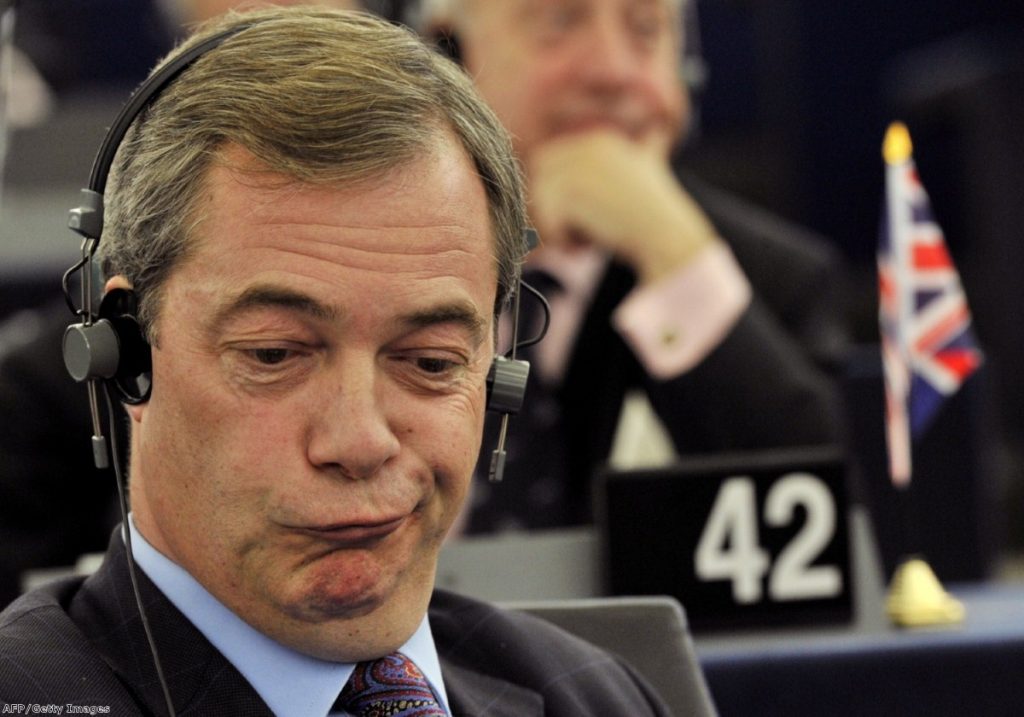The Week in Review: The rise and fall of Nigel Farage’s madly expressive face
The great Ukip revival rolls on apace. The party is buoyed by an unholy alliance of lefties trying to splinter the right-wing vote and righties too idealistic to see they're damaging the Conservatives. Everyone wants Ukip to succeed – a bit. Throw something at the television and it is likely to land on Nigel Farage's madly expressive face.
The week started with news about a couple in Rotherham who were told they couldn't keep foster children because membership of the party made them racist. That was plainly nonsense, although a few troublemakers did bother to highlight some of the jaw-dropping immigration policies the party promotes. Five year freeze on all permanent migration anyone? Regardless of circumstance? Admittedly, it's not quite as disrespectful towards the fundamental forces of reality as the party's 'cut tax-spend-more' economic message, but it's alarming nonetheless.
After the Rotherham scandal, it was Michael Fabricant's turn to swivel the spotlight onto the party. The Tories should form an alliance with Ukip he suggested, because that way they could win another 20 seats at the general election. How did he work that out? Well he took the seats in which the Ukip vote was higher than the amount the Tories lost by and came up with 20. Well, how damned scientific. Of course, it is remotely possible those voters would have switched to Labour or the Lib Dems or, dare we say it… the BNP. Or, more likely, that they could simply have stayed at home. These caveats – often described as 'reasoning' in effeminate circles – were dismissed in favour of a tactic which would have seen David Cameron pledge an in/out EU referendum in return for Ukip's pledge not to stand against Tory candidates in 2015.
The Tories insisted Fabricant did not speak for the party, which was entertaining considering he is the vice-chairman. Farage insisted he would only work with Michael Gove, not Cameron, because he's still smarting on that whole 'closet racists' thing the prime minister once said. Only Fabricant himself was good humoured about the whole thing. "Don't mention UKIP," he tweeted. "Under any circumstances. I mentioned it once, but I think I got away with it."
When Friday morning came the full results of a Ukip-dominated political week were plain for all to see. The party came second in Middlesbrough and Rotherham and third on Croydon North. It was a great showing, but pesky maths people kept doing that 'reasoning' thing again. How many MPs would the party get if it replicated its 4,648-strong Rotherham performance across the country at the general election? None.
Meanwhile, Lord Leveson published his report on media standards. Ed Miliband demanded it was enacted in full before he had even read it. Then it was published – all 2,000 words of it – and within hours he again demanded it was enacted in full. Quick reader, our Ed, but then he can do a Rubix cube in a couple of second, apparently. Nick Clegg had a few more caveats but he basically took Miliband's side.
Cameron said before the report he would implement it unless it was "bonkers". Apparently it was, because Leveson's attempted half-way house of 'self-regulated independent body with statutory underpinnings' had its central policy rejected by the government. In the weird game of 3D chess which followed, Cameron sided with the whole of the press and most of his parliamentary party while Miliband sided with Clegg, some Tories, and probably the majority of public opinion – although that last part is far from certain.
The ensuing Commons debate was a terrible mess, with the deputy prime minister issuing contradictory statements to the prime minister in scenes not seen since the 1930's. But it was a good debate actually: thoughtful, pensive, weighty and full of people seemingly making points of principle. It was quite unsettling. The press made up for it by behaving hysterically, though, so by the time we all went home, everything made sense in the world once again.





-01.png)